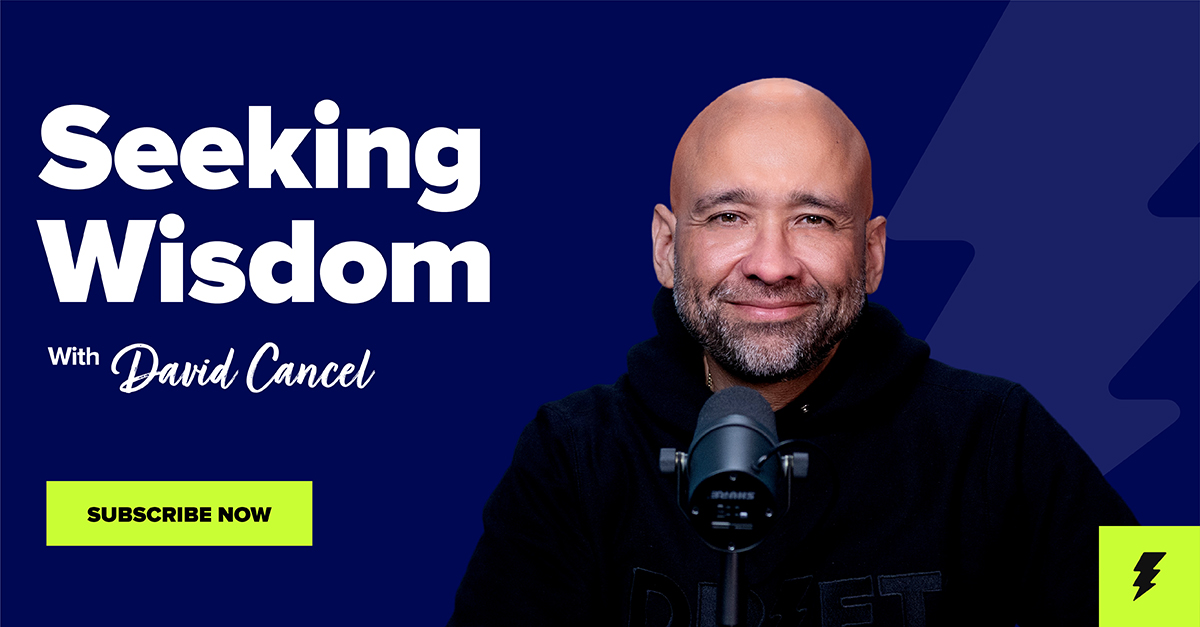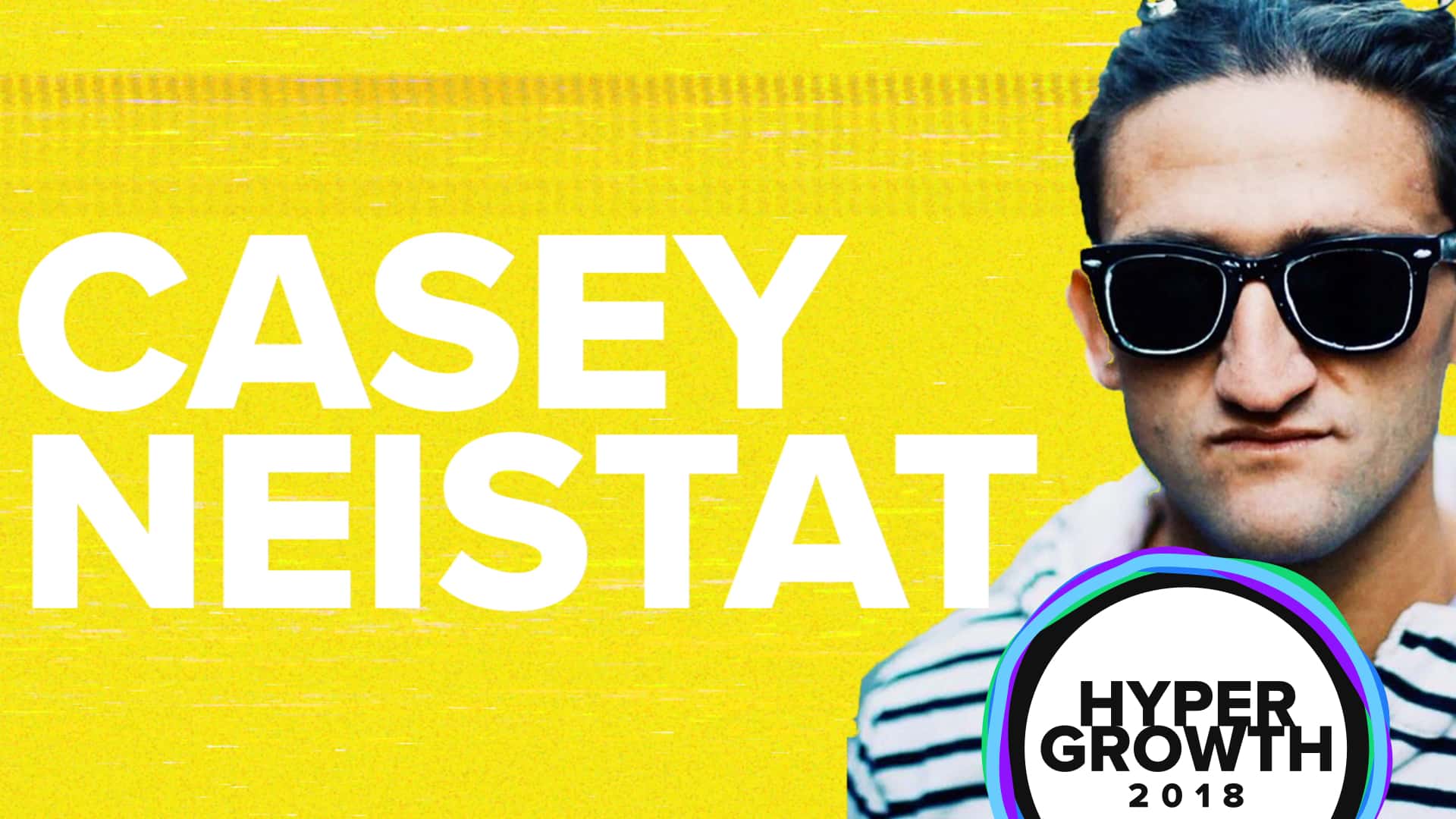Jocko Willink is a former Navy SEAL and best-selling author who spent 20 years in the military. From leading his fellow SEALs in battle as the commander of SEAL Team 3’s “Task Unit Bruiser” to training future SEALs as an instructor, Jocko has held a variety of leadership positions and has worked under conditions so extreme that most folks working in tech (🙋♀️) would have a hard time imagining them.
But here’s the thing: While you may not be able to relate to all of Jocko’s experiences, you can absolutely still learn from them. After all, as Jocko said, “You’re going to have things go wrong on a battlefield, just like you have things go wrong in business.” The best leaders take ownership of those problems, regardless of whether they’re soldiers or civilians.
Over the years, Jocko has developed not only a keen ability to identify the qualities that make a great leader, but also the ability to distill and communicate those qualities to others.
His philosophy boils down to four key principles:
- Practice extreme ownership. Have the mindset that you’re not going to make excuses or blame anyone or anything for your problems.
- Remember that discipline = freedom. Wish you had more free time? The solution is to be more disciplined with your time management.
- Default to action. Make things happen. Take initiative. Move fast. Be aggressive toward your goals (but not toward your teammates).
- Keep your ego in check. When you start thinking you know all the answers, you stop listening to others and your growth stagnates.
The following is based on Jocko Willink’s HYPERGROWTH presentation. To learn more about Jocko (and why our CEO sent his co-founder to train with him),
1. Practice extreme ownership
Extreme ownership is a principle that Jocko has been practicing – and teaching to military leaders and business leaders alike – for several years now. At its core, extreme ownership is about not making excuses or blaming anyone or anything else when a problem arises. Instead, the focus is on immediately taking ownership of that problem and holding yourself responsible for solving it.
What typically ends up happening when teams are faced with problems or challenges or poor outcomes, however, is a lot of finger-pointing. No one wants to stand up and take responsibility. And that ends up having a ripple effect of negativity across your team. As Jocko explained:
When I point my finger at you or you, or I point my finger at anyone in this room, and I start blaming you for something [that’s] gone wrong, what’s your reaction? We get defensive. And we start pointing the fingers back and pointing the fingers at someone else. And pretty soon what we have is everyone on the team is pointing fingers at each other. No one is taking ownership of the problems and, therefore, the problems don’t get solved. That team is never going to perform well.
And while the principle of extreme ownership may sound simple, the tricky part, according to Jocko, is recognizing that it’s about you – not your teammates.
I’ve worked with a lot of companies. And I’ll go and talk to a company about extreme ownership. And when I get done talking to them, someone will come up to me and say, ‘Hey, I really liked what you said about people taking ownership. If I could just get my team to take ownership, we’d be good to go.’ And then the next guy comes up to me and says, ‘Hey, I really liked what you said about extreme ownership. And I hope my boss was paying attention, because if I could just get him to take ownership, we’d be good to go.’
And so now I tell people, while I’m standing here, that I’m not talking about your boss. I’m not talking about your team. I’m not talking about the frontline troops. I’m talking about you. It’s about you.
Drift’s founders connected so much with the idea of extreme ownership that they made it one of the company’s 8 Leadership Principles. Learn more here.
2. Remember that discipline = freedom
At first glance, the “discipline = freedom” equation might sound like an oxymoron or a paradox. After all, aren’t discipline and freedom polar opposites?
As Jocko explained, Discipline means sticking to “a rigid, structured way of doing things,” while freedom means doing whatever we want. So, how can one lead to the other? In his talk, Jocko used the example of free time to explain how “discipline = freedom” works:
Of course, everybody wants free time. More free time is better. How do you get more free time? The way you get more free time is by having more disciplined time management. That’s how you get more free time.
So, if you want more free time, you’ve got to wake up earlier. You’ve got to prepare a schedule. You’ve got to stay to that schedule. You’ve got to stop doing things that waste your time, like clicking on the next YouTube video, right? You’ve already watched 14 of them. You don’t need to watch another video of a cat. You don’t need to.
Ultimately, according to Jocko, “the more discipline you have in your life, the more freedom you’re going to have in your life.” And that’s not only true for individuals, but for teams as well.
3. Default to action
This has been one of our core drivers at Drift since the company started: Default to action. Instead of passively waiting around for the situation to change or for a problem to be resolved, you need to proactively tackle things head-on. Or, as Jocko put it:
You got to be aggressive. Default aggressive. That’s got to be your default mode – to get aggressive and get problems solved. That problem’s not going to solve itself…
If you drop the ball with a client, can you just hide from them? That problem’s not going to get better. It’s going to get worse. So you need to make things happen. You need to move fast. You need to take that initiative. You need to be aggressive.
To be clear, Jocko doesn’t mean you should be aggressive with your teammates, because that kind of aggression only serves to weaken relationships and exacerbate problems. Jocko gave the example of threatening to fire someone as a means of keeping that person in line:
If I’m like, ‘Vitus, if you don’t do what I tell you, I’m going to fire you.’ Does that help build the relationship we were working on? Not at all. In fact, he doesn’t even want to work for me.
For Jocko, defaulting to aggression isn’t about “being aggressive towards your people.” Instead, it’s “about being aggressive towards your goals, towards solving problems and being aggressive towards accomplishing your mission.”
4. Keep your ego in check
What’s the single most important characteristic a leader can have? For Jocko, the answer to that question is easy:
Humility.
As Jocko explained, the Navy SEALs who ended up getting fired from leadership positions while he was in the service didn’t get fired due to a lack of skills or experience, but due to a lack of humility:
Think about what it does to your brain if you lack humility. If you lack humility, you don’t listen to anybody else. You don’t listen to your subordinates. What do they know? You don’t listen to your peers because you do it better than them. You don’t even listen to your boss anymore, because you’re like, ‘Aw, my boss is up in that ivory tower. They don’t know what’s going on down here.’
So you don’t listen to anybody. And when you don’t listen to anybody, your team can’t adopt any new methodology or any new technology. You just stay stagnant.
The solution: You have to stay humble. You’ve got to keep your ego in check. It’s not only essential for your own personal growth, but it’s also essential for the success of your team, and your business. Because as Jocko said, a lack of humility is a weakness that your competitors will be able to take advantage of:
The other thing that happens if you’re not humble is you don’t respect your enemy. You don’t respect your competitors. And when you don’t respect your competitor, guess what happens? You start cutting corners. You stop preparing as much. You don’t train as hard. And when you don’t train and you don’t prepare and you cut corners, guess what happens? You get caught.
Ultimately, to be a great leader, you need to be able to “look in the mirror and do a good, solid, tough assessment of yourself.” Because if you can’t identify areas for improvement in yourself (or in your business), your growth is going to stagnate. And, to quote Jocko, “the minute you start stagnating your improvement, and you don’t try and get better, that’s when you start moving backward.”
Want more leadership lessons like this? Listen to all of the Seeking Wisdom episodes here
Editor’s Note: This article was originally published in January 2019 and has been updated to reflect new information.









